When your illustrious Formula One team has claimed 20 world titles, watching them slip to ninth in the standings must be pretty hard to swallow - especially with two former champions at the wheel and power provided by a legendary F1 engine builder. Having had a couple of weeks to reflect on McLaren’s 2015 season, we caught up with Chairman Ron Dennis to discuss what went wrong - and how he plans to put it right…
Q: Ron, would the expression ‘annus horribilis’ - horrible year - be an adequate description of McLaren’s 2015 season?
Ron Dennis: As far as I recall, the phrase to which you allude was most famously used by Her Majesty the Queen in a speech at the Guildhall in London in late 1992, in which she described that year in those terms. And 1992 was indeed a horrible year for the British monarch. The Prince and Princess of Wales had agreed to separate; the Duke and Duchess of York had agreed to separate; the Princess Royal and her husband, Captain Mark Phillips, had agreed to separate; and, to cap it all, there had been a dreadful fire at Her Majesty’s beloved Windsor Castle. By contrast, 2015 has been an admittedly challenging first year for McLaren’s renewed partnership with Honda, but in truth we expected as much, and our setbacks can hardly be compared to what Her Majesty had to contend with in 1992. Besides, our messaging all season long has been, ‘We know we’ve got a mountain to climb, and we may be making slower-than-hoped-for progress some of the time, but climb it we will.’ And that’s true; we’re climbing it. I’ll concede that our level of competitiveness in some 2015 Grands Prix was pretty hard to stomach - Spa and Monza spring to mind - and our lack of reliability didn’t help either. But we know what we’ve got to do to turn things around, and, as I speak, we’re working night and day to do just that. Put it this way: if you visit the McLaren Technology Centre on a Saturday or a Sunday this winter, you won’t find many free car parking spaces!
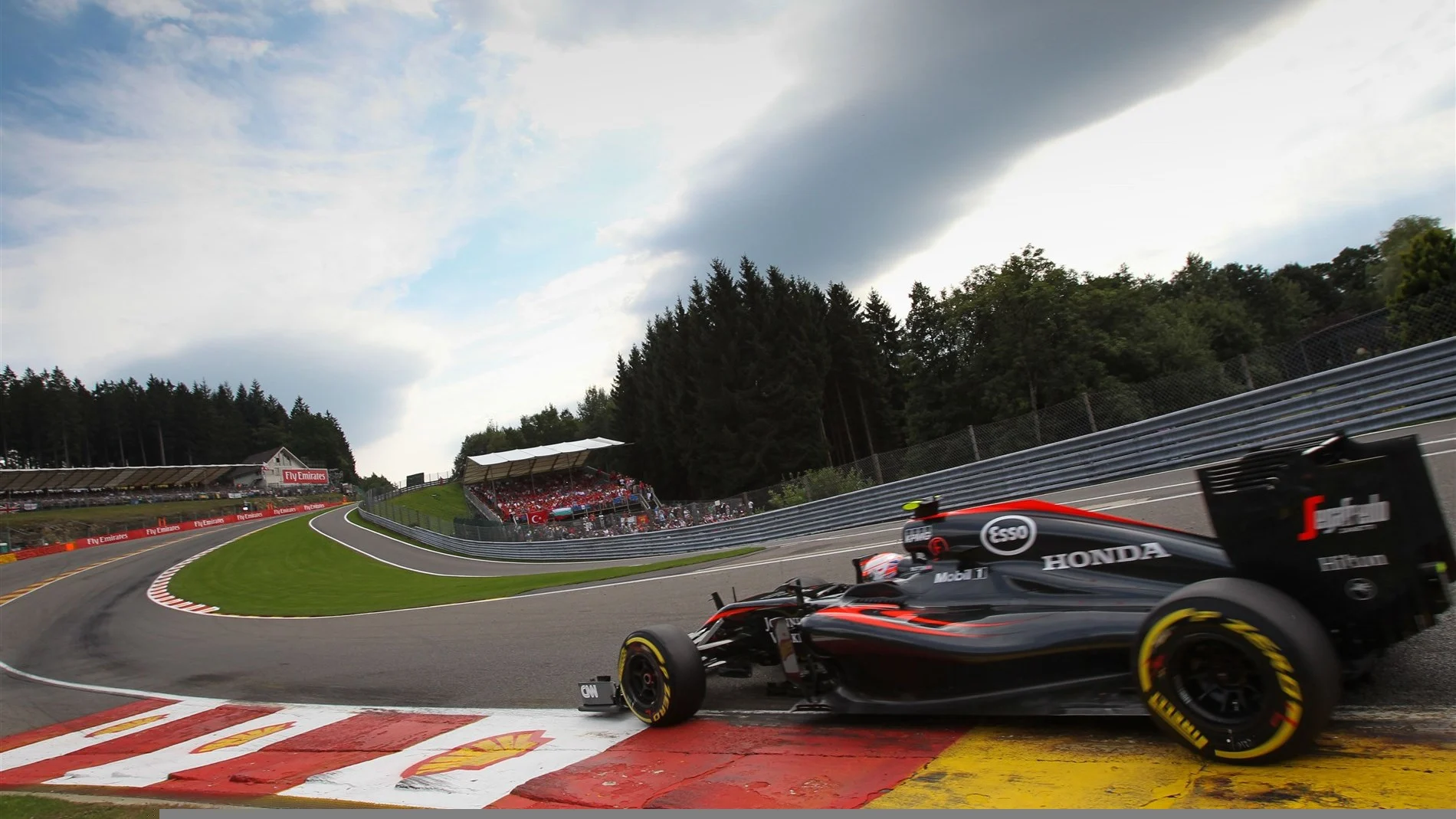
I’ll concede that our level of competitiveness in some 2015 Grands Prix was pretty hard to stomach - Spa and Monza spring to mind.
Q: Can you give us your view on what could have been done differently? Was there ever a chance to do things differently, in fact?
RD: Our chassis is a very good one - all the data bears that out. Our driver line-up is the best in the sport - the stats prove that. Our partnership with Honda is a new one - or a freshly renewed one to be precise - and it’s not remotely surprising that it should be taking a little while to gel. That’s what Formula One is like, and it always has been. When Michael Schumacher won the drivers’ world championship in 2000, it was the first such triumph achieved by Ferrari since Jody Scheckter had won the drivers’ world championship 21 years before that, in 1979. Okay, that’s an extreme example, but we all know what happened next: Ferrari won world championships in 2001, 2002, 2003 and 2004. In other words, they climbed their mountain. Red Bull were very successful a few years ago, winning world championships in 2010, 2011, 2012 and 2013. But, before that, from 2005 to 2009, they hadn’t been particularly triumphant, and, earlier, from 1997 to 2004, during which period the team had been known first as Stewart-Ford and then as Jaguar, they had been less successful still. So the truth is that Red Bull’s recent successes have been a long time coming. And even Mercedes-Benz, who have dominated this year and last, took a while to start winning. From 2010 to 2013 they were good but not great, and, before that, from 1999 to 2008, during which period the team had been known first as British American Racing and then as Honda, they hadn’t been at all impressive. Only in 2009, when their double-diffuser had given them a notable one-off technical advantage, had they been successful during all those barren years. So you get my drift, I think. Formula One is a cyclical sport. Success is hard-earned. Some teams never achieve it - Sauber have been toiling away for more than 20 years without notching up even a single Grand Prix victory, for example, other than one surprise win in 2008, during which year the team had briefly become a BMW works outfit - and that’s because Formula One is extremely difficult. Please don’t misunderstand me. I have great respect for all the teams I’ve just mentioned, and I hope the people who work for those teams have great respect for McLaren and Honda too. But the reason I’ve gone to the trouble of itemising their histories is that I want to illustrate for you, without fear of contradiction, that success in Formula One takes time to achieve.
And, as I’ve said before and will doubtless have cause to say again, we’ll get there. So, to revert to the specificity of your question, I’m not going to hypothesise about what might have happened had we done things differently, because I don’t think there’s anything specifically wrong with the way we’ve done things. As usual in Formula One, it’s taking us a little time to get things right, that’s all, and I hope the entirety of my reply explains why that’s neither unusual nor surprising.
Q: In the spring Eric Boullier and both your drivers encouraged us all to believe that success would come by the autumn. But, now that the season is done and dusted, the McLaren picture is still quite an unpleasant one to behold. Was there ever an improvement? Did we miss something?
RD: Some circuits suited our car’s chassis / power unit combination better than others. I’ve already said that Spa and Monza stand out in my memory as particularly joyless weekends, and that’s because the flat-out nature of those old-school racetracks tested acutely the upper echelons of our power unit’s performance envelope. By contrast, at Monaco and Hungaroring, on which tortuous circuits our car’s ability to change direction swiftly was a more pertinent advantage, we fared rather better; and we duly scored points in both races.
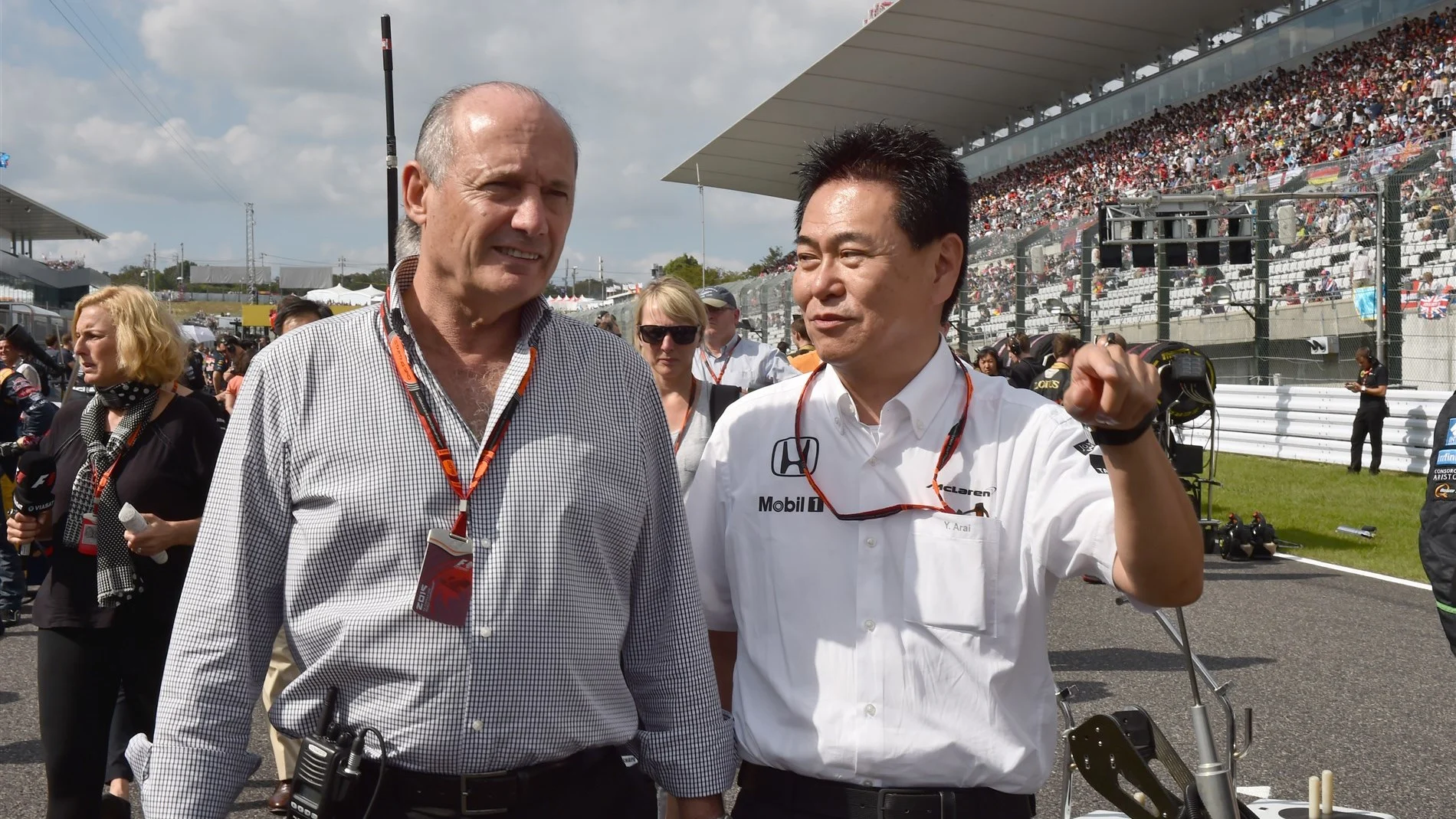
I’m not going to hypothesise about what might have happened had we done things differently, because I don’t think there’s anything specifically wrong with the way we’ve done things.
Our progress was never likely to be linear, therefore. And what Eric, Fernando and Jenson meant was that our overall performance trend would be positive, and they were right; it was; it is. In motor racing there’s a phrase that says you’re only as good as your last race. Well, as soon as Jenson got out of the car after the 2015 Abu Dhabi Grand Prix, which is indeed currently our last race, he said: “That was probably my best race of the year.” Okay, he finished only 12th, having been delayed by rear-wing endplate damage caused by Valtteri Bottas’s unsafe release at the hands of the Williams pit crew, but the car had felt good and he’d reported as much.
Fernando’s 2015 Abu Dhabi Grand Prix was also spoiled through no fault of his own, his having been saddled with a drive-through penalty after having skirmished with Pastor Maldonado’s Lotus in a manner that we regarded as pretty innocuous.
Having said that, after the race, Fernando was happy too. And that was because, over the last five laps, we’d switched his car’s settings to ‘full deployment’, not only so as to allow him to have a bit of on-track fun, but also so as to find out just how well our car would perform in that performance configuration. Well, the results were pretty encouraging. He carved his fastest lap on the 55-lap race’s 52nd tour - 1m 44.796s - and only two drivers bettered that all afternoon: Mercedes’ Lewis Hamilton and Ferrari’s Sebastian Vettel.
So, if you’re only as good as your last race, as the saying goes, then all I can say is that we’re not too bad.
Q: You’ve said you wanted to give your team a ‘true north’ direction - but would it be fairer to say that right now your compass knows only due south?
RD: That’s a cheap shot, but the answer is 'no'. I’ve answered your last three questions meticulously, in an effort to explain why developmental progress in Formula One is often slow, and how we’re attempting to achieve it. And the signs that we’re doing what we’ve set out to do, albeit perhaps not as quickly as many of us would ideally like, are all there. So what do I mean when I talk about ‘true north’? I think the American author and motivational speaker Sean Covey puts it best: “Honesty is a principle. Service is a principle. Love is a principle. Hard work is a principle. Respect, gratitude, moderation, fairness, integrity, loyalty and responsibility are principles. There are dozens and dozens more. They’re not hard to identify. Just as a compass always points to true north, your heart will always recognize true principles.” So true north is a mindset thing. And, together, McLaren and Honda are striving to attain and maintain that true north mindset, because it identifies our goal, our target. And then, leaning on the principles that Covey listed, McLaren’s and Honda’s managers and technicians are working and will continue to work together to navigate our way through the difficult territory that currently separates us from that goal, that target. It’ll be an exciting journey, there may be a few shunts on the way, but our intended destination will be reached, mark my words.
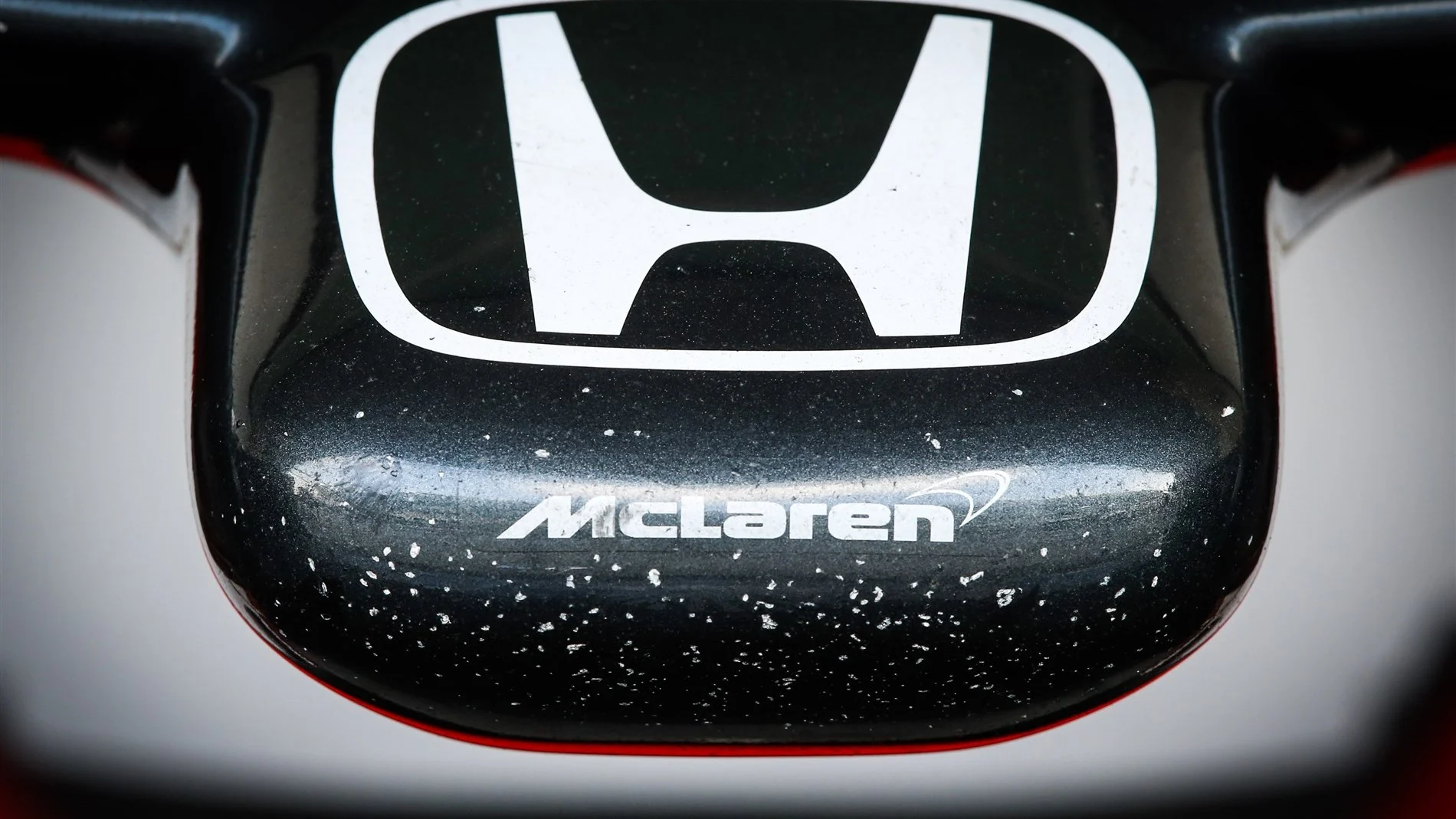
It’ll be an exciting journey, there may be a few shunts on the way, but our intended destination will be reached, mark my words.
Q: What was going through your mind when you saw Fernando sun-bathing during the Brazilian Grand Prix qualifying? Wasn’t that gallows humour at its best?
RD: I chuckled to myself, to be honest. All work and no play makes Jack a dull boy. There’s nothing wrong with a bit of humour. And Fernando is as hard-working as he is talented, be in no doubt of that. He’s matured enormously since he last drove for us, eight years ago, and he’s now one of the most complete drivers I’ve ever had the privilege of working with. He has what I often refer to as the four e’s that all racing drivers should aspire to cultivate: energy, enthusiasm, expertise and experience.
Q: It’s no secret that Fernando earns quite a substantial salary. But it’s almost a running joke that it’s not really a salary but more of a compensation for personal suffering. Isn’t it tearing your heart apart when you see that probably the best Formula One driver in the world is languishing at the back?
RD: Fernando’s contract is of three years’ duration - no performance clauses, no nothing. He always knew that 2015 would be a learning year. He knows equally well that, together with Honda, we’ll make big improvements. So he joined us with open eyes. Together with the expertise and experience he’s cultivated over the past 15 years spent racing in Formula One, he still bristles with energy and enthusiasm.
He’s had better years than 2015, obviously; but he knows that great years lie ahead of him, with McLaren-Honda.
Q: We gather that McLaren has a veto on supplying other teams with Honda engines. You said that not to supply Red Bull was a unanimous decision by you and Honda, and that you were just the ‘messenger’. But Red Bull said they talked with Honda and had a completely different impression: that Honda wanted to supply them.
RD: I stand by what I said. There’s nothing I need add to that, really, is there?
Q: There has never been a team that has suffered more grid place penalties than McLaren did this season. What do you make of that? Is that evidence of sound operational procedures?
RD: Our cars racked up a total of 310 grid place penalties all season, but the overwhelming majority of them were the result of power unit component changes. Honda are aware of the enormity of the task they face - and, working together, we’ll help them conquer that task.
Q: When you look around in the paddock, there are a number of people who are ‘big’ right now - who have been working for you in the past - just to drop some names: Adrian Newey, Paddy Lowe and the freshly minted three-time world champion Lewis Hamilton. Is the question ‘Why did they leave me?’ haunting you in your sleep?
RD: I sleep very well, thank you. I have great respect for all three of the individuals you mention, and I’m proud that they all achieved success at McLaren before going on to ply their trades elsewhere. It’s rare that a designer, or an engineer, or a driver, stays with one team throughout his career. When I was a young man, in 1966, I started my Formula One career at Cooper. Then I moved to Brabham. We’ve all done that kind of thing. McLaren has won the drivers’ world championship with seven drivers: Emerson Fittipaldi, James Hunt, Niki Lauda, Alain Prost, Ayrton Senna, Mika Hakkinen and Lewis Hamilton. With the single exception of Lewis, whom we famously guided from infancy to the 2008 drivers’ world championship, every single one of those great drivers started his career with a rival team and then moved to McLaren, where he was very successful. So the world turns; people move around in Formula One; sometimes they leave other teams to join us, and at other times it’s the other way around; it works both ways; it’s normal.
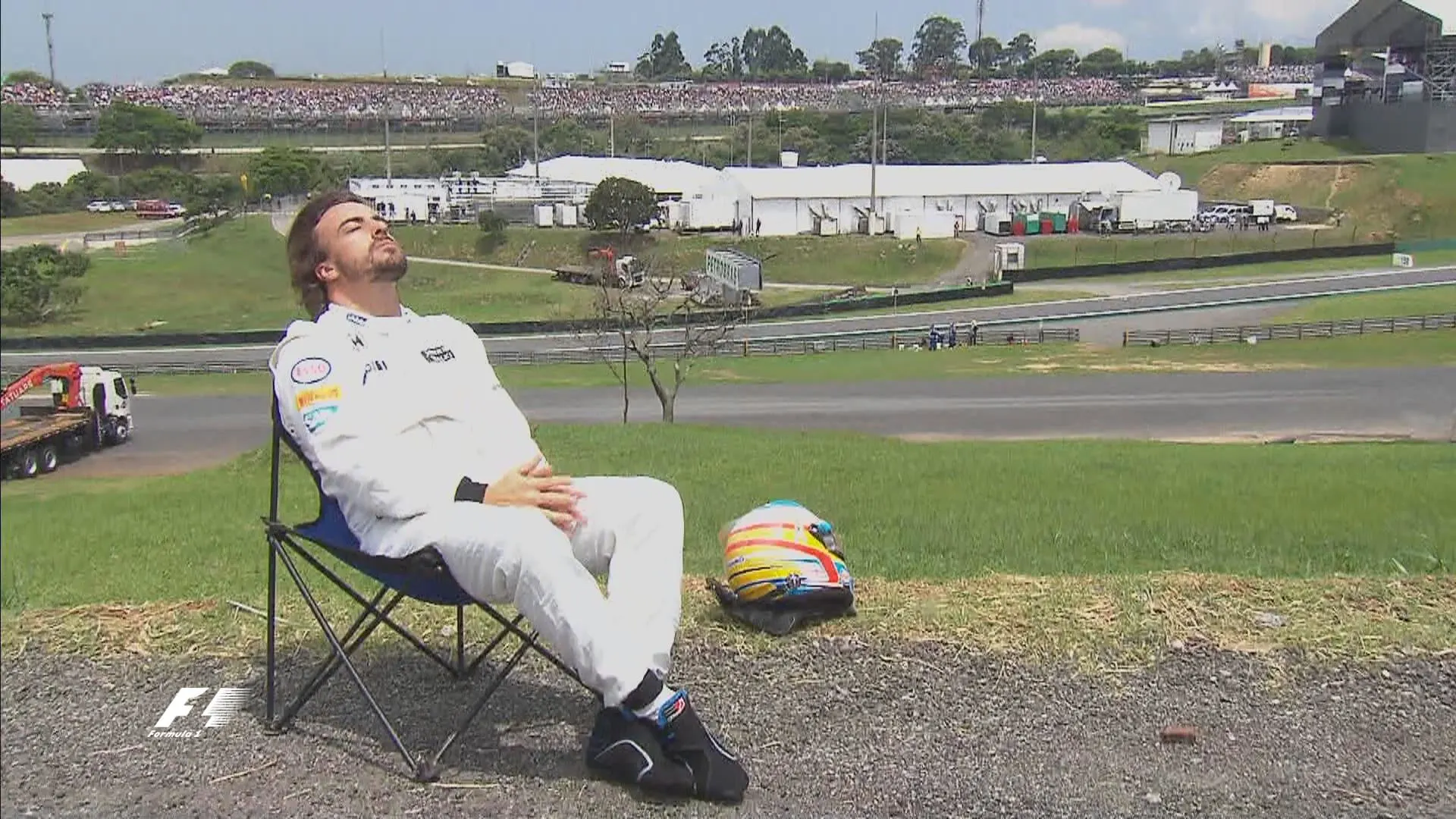
Fernando has matured enormously since he last drove for us, eight years ago, and he’s now one of the most complete drivers I’ve ever had the privilege of working with.
Q: Talking of drivers who have left McLaren, why were you so critical of Kevin Magnussen when you were asked about him in Abu Dhabi?
RD: I’m not perfect, and sometimes I’m guilty of answering a question a little more irritatedly than ideally I should do. Kevin is very talented, and we all wish him well. His Formula One debut for McLaren was stunning: second in his very first Grand Prix [the 2014 Australian Grand Prix]. He was generally very quick in qualifying that year - and, if sometimes he wasn’t quite as proficient as was Jenson when it came to measuring tyre wear during tricky races, well, that was hardly a disgrace. After all, Jenson is brilliantly adept in that area. But the sad fact is that three into two won’t go. We have the best driver line-up in Formula One and, since Kevin understandably wants to race next season, there simply wasn’t going to be room for us to accommodate him in 2016. Should that have been a shock to anyone? No. Put it this way: it’s pretty unsurprising that we didn’t want to change our driver line-up when our two current drivers have started 537 Grands Prix and have won 47 of them, as Fernando and Jenson have, cumulatively, isn’t it? And it’s no criticism whatsoever of Kevin that we preferred over him two drivers as majestically qualified to lead McLaren-Honda to future successes, as Fernando and Jenson are, however talented Kevin may undeniably be.
Q: Okay, last question: can you give us three reasons why McLaren will turn things around in 2016?
RD: We, McLaren and Honda, share a clear goal. We’re embracing our collaboration in an effort to lay the foundations for long-term success. We’re prepared to work super-hard to achieve it.
There’s your three reasons. Merry Christmas.
Next Up
Related Articles
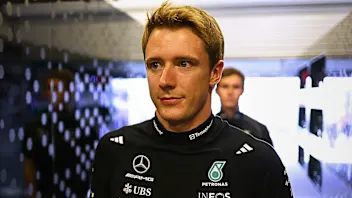 ExclusiveVesti on life as Mercedes reserve and his F1 plan
ExclusiveVesti on life as Mercedes reserve and his F1 plan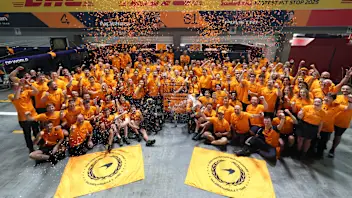 PalmerJolyon Palmer picks his top performers in 2025
PalmerJolyon Palmer picks his top performers in 2025/TEAM%20PREVIEWSHALF%20TERM%20REPORTS%20DISPLAY%20V1%20(13).webp) End Of Year Reports 2025Racing Bulls’ best and worst moments from 2025
End Of Year Reports 2025Racing Bulls’ best and worst moments from 2025.webp) End Of Year Reports 2025Aston Martin’s best and worst moments from 2025
End Of Year Reports 2025Aston Martin’s best and worst moments from 2025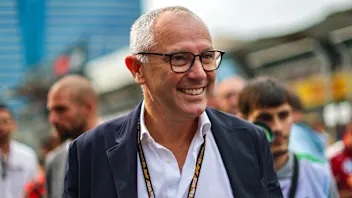 F1 CEO Domenicali reflects on 'phenomenal' 2025
F1 CEO Domenicali reflects on 'phenomenal' 2025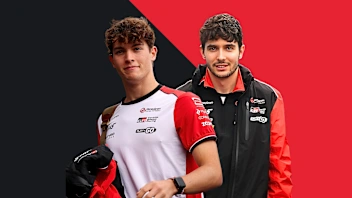 End Of Year Reports 2025Haas’ best and worst moments from 2025
End Of Year Reports 2025Haas’ best and worst moments from 2025